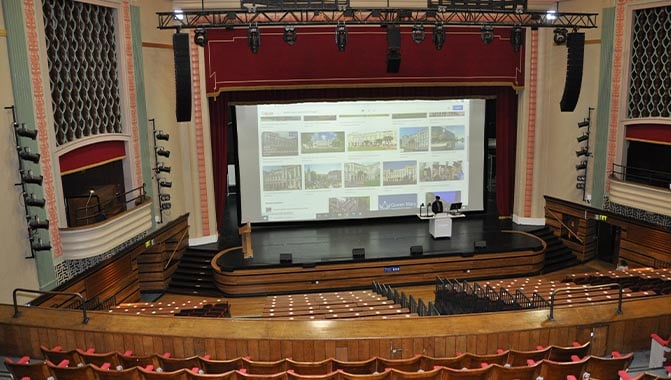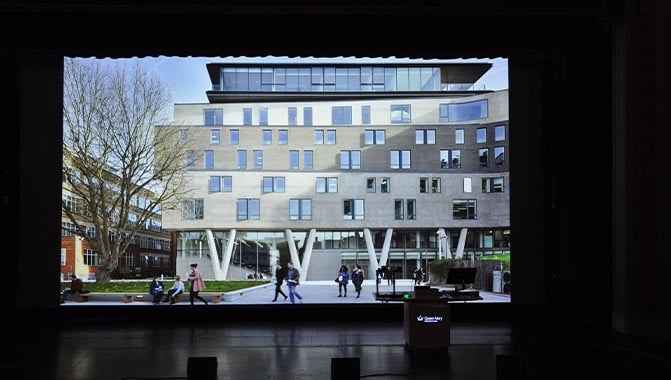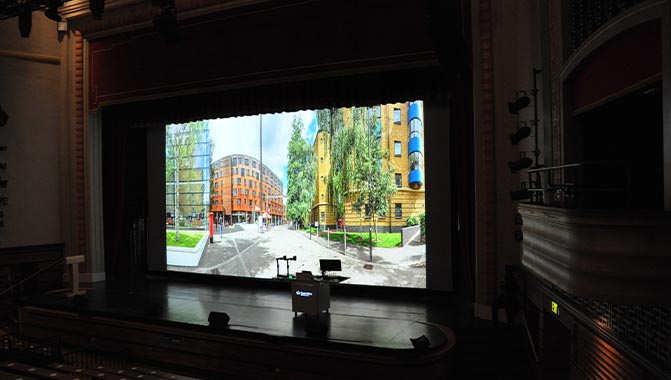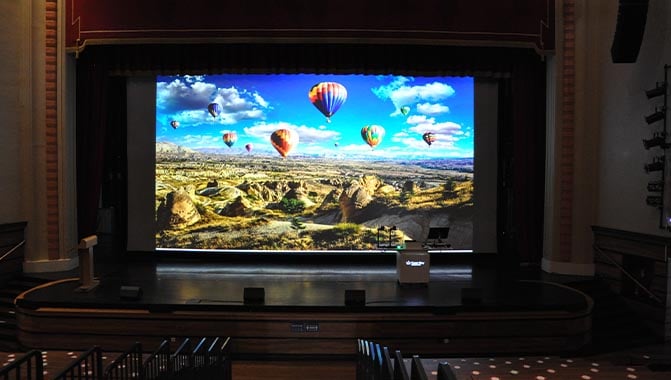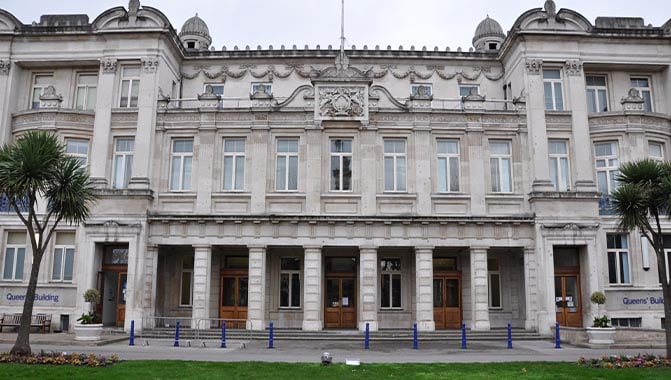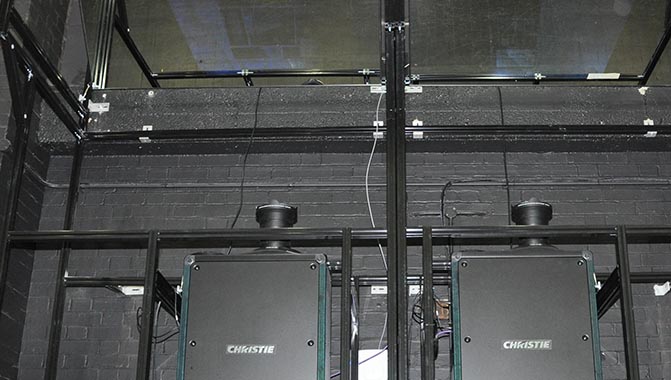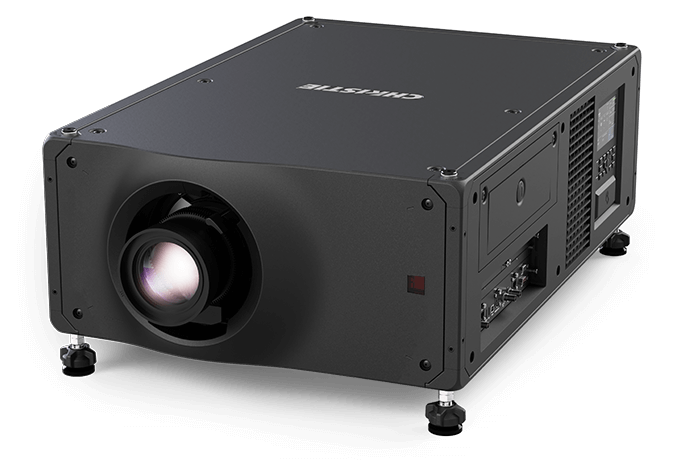Reflex Ltd, AVM
United Kingdom
Education
Christie Crimson HD31, Christie Terra
Queen Mary University upgrades from lamp to laser
Photo credit: Clive Reygers, Reflex.
The upgrade from lamp to Christie laser on one of Europe’s largest rear screen projections in Europe –the huge screen in the historic Queen Mary University of London - brilliantly illustrates the new technology. And the advantages couldn’t be better summed up than by Raj Dattani of Reflex: "We have gone from two 10K projectors, 4 lamps, and regular maintenance checks to triple the brightness and no maintenance with laser." Additionally, a switch to AV over IP distribution means just one cable to the projector giving users and clients huge flexibility.
Dattani is the senior technical design engineer at Reflex who led the install. In fact, it’s the second upgrade of the flagship space in seven years by Reflex, AVM and Christie, which speaks volumes.
The screen is an impressive 12m by 6m (39 ft x 19.5 ft) and is located in The Great Hall, an 800-seat space in a wonderful 1930s art deco building. Queen Mary University is a Russel Group university, with more than 25,000 students, so investing in advanced technology to further their students’ learning is a key consideration. Because it is rented to large external companies as well as used for students, it is an important source of revenue and having world-class audio-visual technologies is imperative.
From lamp to laser
The previous 3DLP® Christie projectors had proved reliable well past the warranty period, and the client was both happy and familiar with them.
Upgrading from lamp to a laser illumination light source would help reduce the running costs and maintenance. "The Christie Crimson HD31 projectors offer both," says Mick Perrone, key account manager with AVM. "And with BoldColor™ Technology for rich and vibrant colours, they offer enhanced colour performance and saturation over standard laser phosphor projectors. Since there are no lamps to change, we don’t have to schedule return visits to the site as they are virtually maintenance free."
However, those were only a couple of reasons Reflex and AVM went with Christie again. There were other features to consider such as having a comprehensive suite of lenses, being fully omnidirectional, and equipped with blend and warp software.
The omni-directional functionality of the projectors was critical as they needed to be mounted vertically in the new projector rigs to beam light on the mirrors at a 45-degree angle, otherwise there would be a risk of over-heating and damage being mounted in this orientation.
"This was a challenging installation due to the sheer size of the projection screen and the limitations of where we could actually position the projectors. We wanted to make sure the whole screen was filled and make the most of it," Perrone explained. "And whilest the specification of the projectors and lenses were appropriate on paper, the position of the installation pushed them right to their limits of their zoom and lens shift capability. To ensure they worked correctly in situ, before getting design approval, AVM tested the products off site. This was a crucial element that contributed to the success of the project."
The Christie Twist™ built-in warp and blend software that comes with the projectors at no additional cost was used during the commissioning phase. Twist incorporates an industry-leading algorithm which works at a pixel level to ensure a perfect blend between the projectors.
AV over IP
In the original installation, Dattani had overseen a very comprehensive overhaul, and the same applied to this upgrade: "The university has an amazing space and huge screen which we maximised with the projection and image quality. In turn, to make the most of that projection, we wanted to offer users options to display multiple feeds on the screen such as running a live presentation at the same time as a video feed or PDF or Word document."
An Extron Quantum Ultra 305 processor and Wyrestorm AV over IP hardware delivered the flexibility on screen and reduced the previous mass of wires to a single IP copper connection to the lectern from the head-end racks by connecting two Cisco network switches together offering up to 10Gbps of AV over IP bidirectional data traffic. Over twelve cables are now combined down to one CAT-6A copper cable connection allowing the university teaching staff or events team to easily disconnect and move the lectern on the stage to a different location or into storage.
The Christie Crimsons come standard with high bandwidth multi-input cards to connect fibre directly and Christie Terra® SDVoE input board for direct interfacing of up to 4K AV content and control over 10G Ethernet.
Queen Mary University is very pleased with the results. Henrik Brogger, Head of IT Service Delivery, commented, "Thank you to the team at Reflex for helping make the upgrade of our prestigious space by far fit for the future! I can’t wait to see a lecture in the hall with that magnificent projection."
